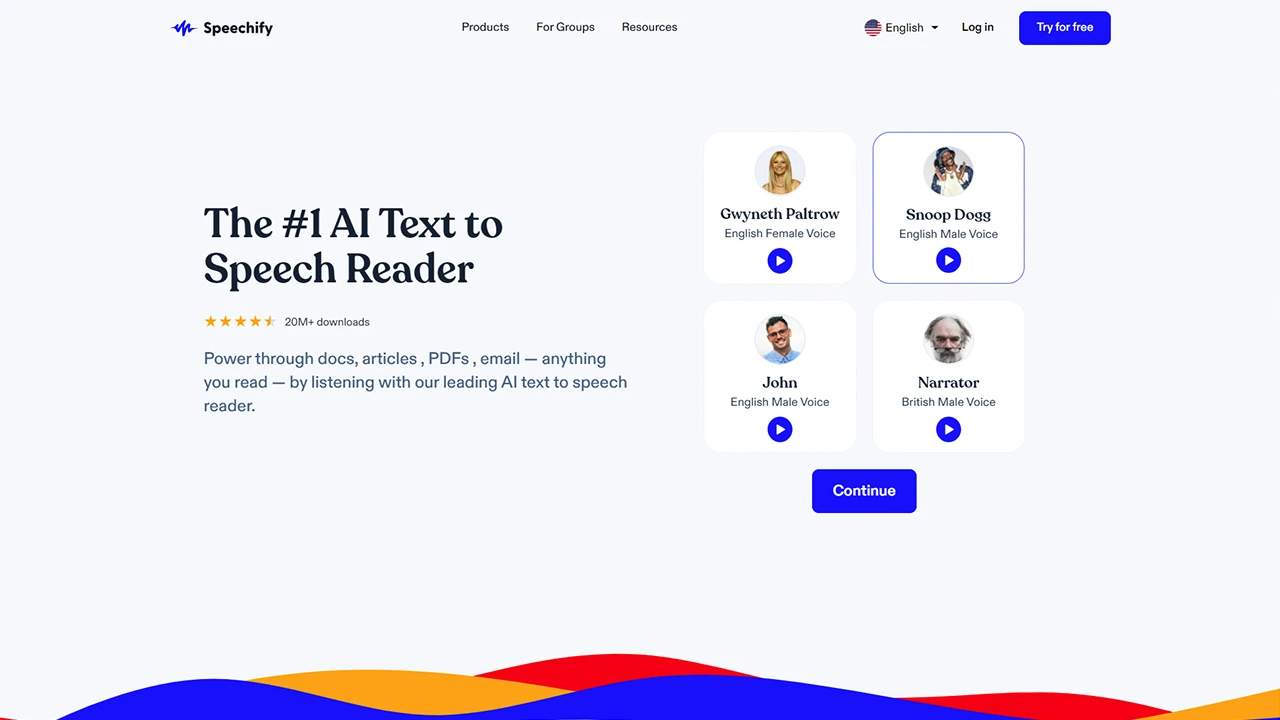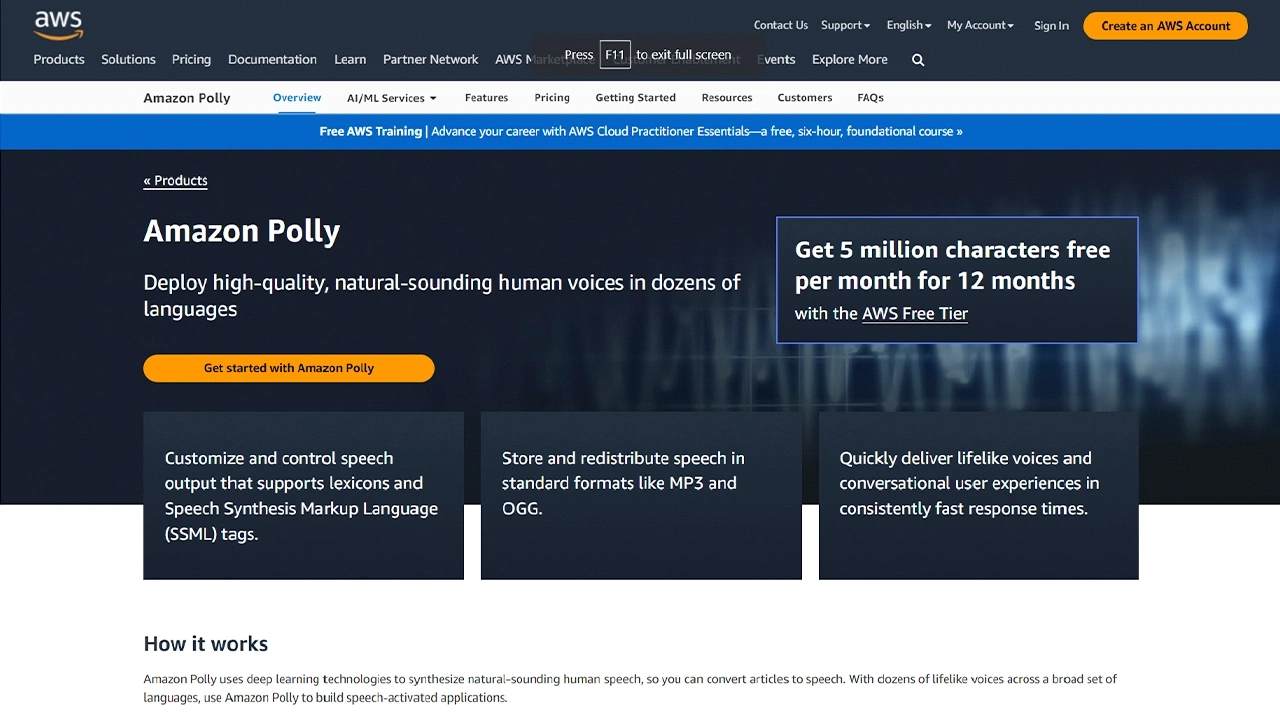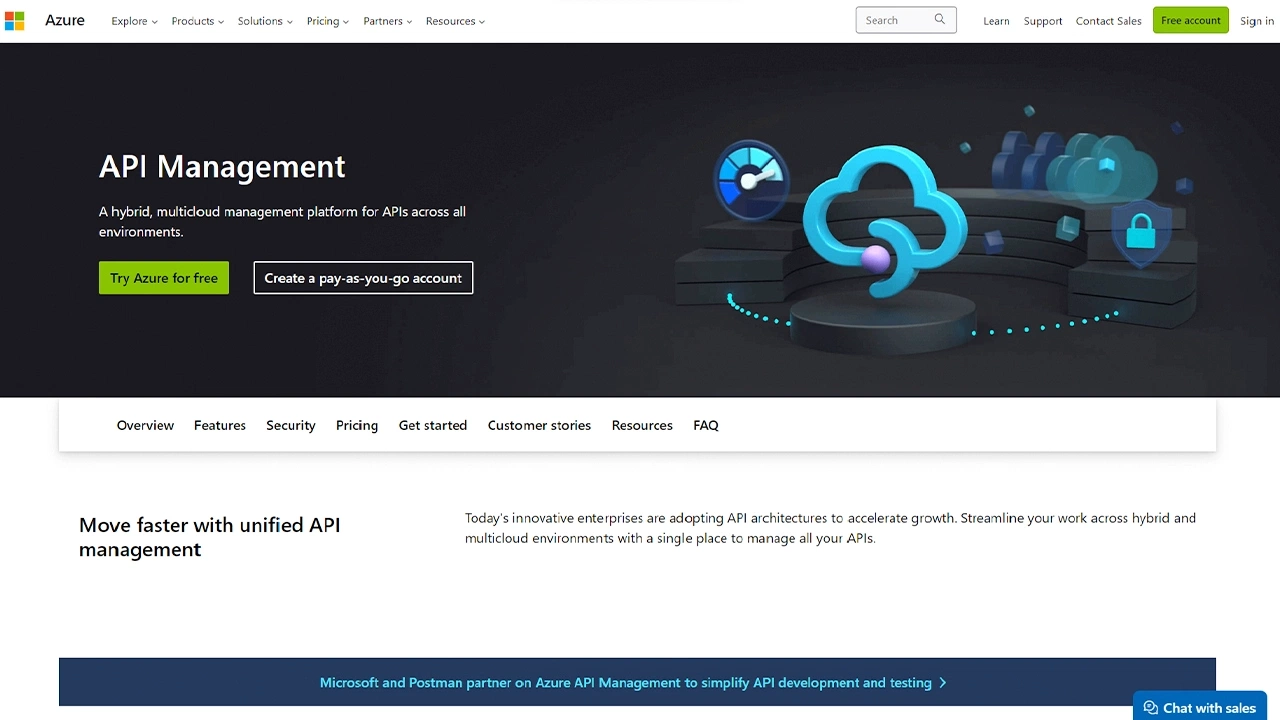Google WaveNet text to speech, developed by DeepMind and integrated into Google Cloud's Text-to-Speech (TTS) service, has revolutionized speech synthesis with its high-quality and natural-sounding voices. However, for users seeking alternative solutions or exploring other options, there are several impressive TTS platforms that offer exceptional speech synthesis capabilities in various languages, including English and Mandarin. In this article, we will delve into the top alternatives to Google WaveNet, examining their features, pricing, and performance.
Exploring Top Alternatives to Google WaveNet Text to Speech
1. Speechify:

Speechify is a popular TTS platform known for its user-friendly interface and seamless integration. With a wide range of natural-sounding voices and support for multiple languages, including Mandarin and English, Speechify caters to various needs, from audiobooks to voiceovers for videos. Its real-time and high-quality speech synthesis make it a suitable alternative for those seeking an intuitive and efficient TTS solution. 2. Amazon Polly:

Amazon Polly, a robust TTS service from Amazon Web Services (AWS), is a prominent Google WaveNet alternative. With its neural network-based WaveNet-like voices, Amazon Polly delivers high-quality and natural-sounding speech synthesis. Supporting various languages, including English, Chinese, Japanese, and more, Polly caters to a wide range of applications, from voiceovers for videos to audiobooks. Its real-time and cost-effective API allows seamless integration for developers and businesses alike. 3. Microsoft Azure Text-to-Speech:

Microsoft Azure's Text-to-Speech service is another strong contender in the TTS landscape. With its state-of-the-art deep learning algorithms and neural network models, it provides natural-sounding voices in multiple languages. Azure's cloud-based platform ensures real-time TTS capabilities and offers various voice options to match specific requirements. Moreover, it integrates seamlessly with Microsoft's ecosystem, making it a reliable choice for users deeply invested in the Microsoft environment. 4. IBM Watson Text to Speech:IBM Watson's Text to Speech service leverages advanced AI and machine learning technologies to synthesize human-like speech in over 20 languages, including English and Mandarin. With its natural-sounding voices, Watson TTS is suitable for diverse applications, from voiceovers in videos to voice assistants in apps. The platform's customizable voice features enable users to create unique and personalized voice outputs. 5. OpenAI GPT-3:While primarily known for its language generation capabilities, OpenAI's GPT-3 can also be employed as an alternative to Google WaveNet for text-to-speech synthesis. By providing written text as an input to GPT-3, users can generate raw audio with natural-sounding human speech. Though not specifically designed for TTS, GPT-3 demonstrates impressive performance in speech synthesis, showcasing its versatility as an AI model.
Choosing the Right Alternative to Wavenet Voices
Selecting the best alternative to Google WaveNet depends on individual requirements, such as language support, voice quality, pricing, and integration capabilities. Before making a decision, consider factors like the size of datasets and dependencies, the need for custom voices, and the compatibility with different platforms, including iOS and Android. Additionally, evaluating the platform's documentation, tutorials, and API keys can help ensure a seamless integration process.
Why Speechify is the top Alternative
As the leading alternative to Google WaveNet text to speech, Speechify stands out with its exceptional cloud capabilities, providing high-quality and natural-sounding voices. With Speechify, users can easily convert text into audio files, utilizing advanced artificial intelligence and the Wavenet model for precise and realistic voice synthesis. The platform supports various formats, including WAV, and offers seamless integration through the Cloud Text-to-Speech API. Whether you need text-to-speech for applications like Google Assistant or audio waveforms for interactive projects, Speechify's convolutional and parametric approaches, along with SSML support, make it a top choice among AI voice-driven text-to-speech systems within the Google Cloud Platform. In conclusion, the text-to-speech landscape offers a diverse array of platforms, each showcasing unique strengths and features. Whether you seek high-quality natural-sounding speech synthesis, real-time processing, or compatibility with specific cloud platforms, the alternatives mentioned above provide excellent alternatives to Google WaveNet text to speech, catering to various applications and user preferences.





